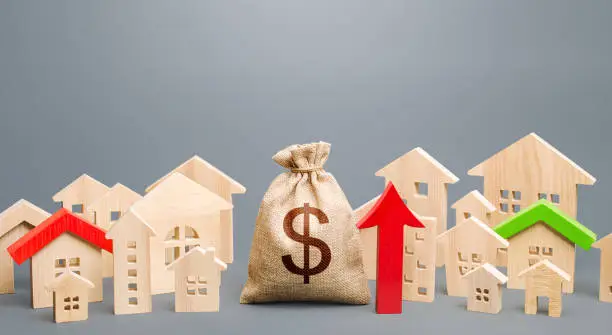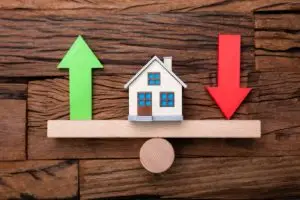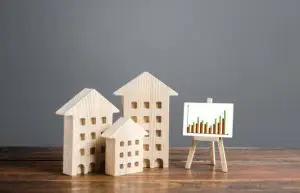Calculating the Appreciation on a Home

Calculating the Appreciation on a Home: What You Need to Know
If you’ve recently purchased a home, you may feel like it costs more than it’s worth. After all, mortgage payments, property taxes and other home ownership expenses can really add up. However, over time your home will likely increase in value. Understanding how the value of your home increases over time and how to calculate the appreciation of your home can help you make informed decisions about selling it in the future. Whether you plan to sell your house one day or simply want to know more about its value as an asset. The way they determine this valuation depends on several factors such as location and condition. Read on to learn everything you need to know about calculating the value of your home.

Calculating the Appreciation on a Home: What You Need to Know
What is Home Appreciation?
Appreciation is the increase in the value of an asset over time. The term is sometimes used to describe the growth of a stock or other investment, but it is more commonly used to refer to the increase in the value of real estate. When you hear that a neighborhood has appreciated, that means property in that area has seen an increase in value. When you buy a house and use a mortgage to finance part of the purchase, the house’s value is often less than the amount of the mortgage. That’s because lenders consider the value of the house when approving a mortgage loan. They use an appraisal to determine the home’s worth, and they often set the amount of the mortgage as a percentage of the house’s value. But as the months and years pass, the value of the house increases.
Why Does a Home Appreciate?
Some people think rising home values are a result of growing population. Others believe home appreciation is a natural consequence of housing supply and demand. The truth is that both of these factors play a part in home appreciation. Home values grow as the population grows, meaning there are more people to buy houses, which increases demand and thus prices. And as the supply of available homes stays the same while demand rises, the price of each home will increase simply to keep the market balanced. Additionally, location plays a major role in the process. For example, when the local economy is strong, people earn more money, which leads to higher demand for housing.
How to Calculate Appreciation of a Home

Calculating the Appreciation on a Home: What You Need to Know
To calculate how much your home has appreciated over a long period of time, you’ll need to know the following: – Home purchase price – Home purchase date – Current home value Once you have all this information, you can use the formula below to determine the appreciation of your home: Appreciation = Purchase Price – Current Home Value To calculate the increase in the value of a specific area, you’ll need the following: – Area home values at time of purchase – Area home values at time of sale What you’re looking for is the percentage increase in value from one point in time to the next. For example, say you bought a home in 2000 for $200,000. In 2018, the house is worth $350,000. The appreciation rate would be $350,000/$200,000, which equals 1.5 or 150%. That’s the percentage increase in value over a span of 18 years.
Determining the Selling Price Based on Appraisal
While the process of calculating the appraisal value of a home is straightforward, determining the actual selling price may not be so easy. That’s because various factors can affect a home’s appraisal value, including its condition, location and type of financing. If you want to sell your house any time soon, it’s important to understand how these factors will affect the appraisal value. Keep in mind that the appraised value is the amount a lender will approve for a mortgage. Depending on the lender and market conditions, that value might fall short of what you hope to get for the house. It’s a good idea to get an appraisal before you list your house for sale. That way, you’ll have a ballpark figure in mind for the final sales price.
Conclusion
Home appreciation occurs when the value of a property increases over time. This increase can occur due to changes in location, improvements, market conditions or other factors. Appreciation is beneficial to homeowners because it increases the market value of their property. In most areas, appreciation is the result of an increase in demand for housing; which may be caused by an increase in population or an increase in income levels. In order to calculate the home appreciation; you must know the original cost of the home, the current value, and the period of time over which the appreciation occurred. Home values are affected by many factors, but over the long term they tend to rise. This means your property will be worth more than you paid for it in the future. And if you ever decide to sell your home; understanding the factors that affect its appraisal value can help you get a good selling price.
